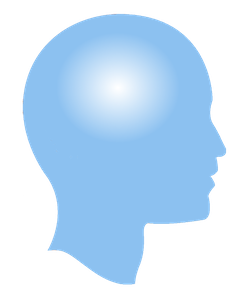What’s the problem?
Much has been written about the fact that we are facing a desperate situation. Climate Change is upon us and we are faced with the urgent task of trying to understand the nature of the problem and what to do about it. At the same time we are experiencing huge economic, political, social, and technological challenges. Solutions to these separate issues abound but I suggest they are doomed to fail unless they address a deeper problem, one which they all share.
In A Wild and Sacred Call: Nature-Psyche-Spirit author Will W. Adams makes a convincing argument that what is driving these problems is “alienation: from our own bodies, from each other, and from the earth.” He further claims that these are not separate problems but “aspects of the same problem”. In other words these particular types of alienation are part of a more general alienation that characterizes a global malaise permeating all areas of human activity.
I believe the cause of this all too common alienation is to be found in a widely held view of who we are as human beings and our place in the universe is. Because we believe ourselves to be separate, independently existing selves living in a reality made up of separate, independently existing things we feel fundamentally disconnected from our bodies, each other, and the earth. We experience life as minds or selves that are separate in some way from our bodies. These minds, we believe, are also separate from one another and from all other things in existence. Alienation almost seems too mild a term for such complete and utter isolation. The term somehow fails to capture the desperate loneliness of being cut off from every other thing and every other person. This is the terrible price we have paid and continue to pay for subscribing to the ideals of individualism and self-sufficiency so revered by so many in today’s world.
How did this happen?
A mindset based on the assumption of separation is presently the dominant view of reality around the world. It is based on the myth of separation described above and is responsible for the deep seated alienation that Adams addresses in A Wild and Sacred Call. It is a view that has evolved over centuries built primarily out of speculative philosophical ideas and religious dogma rather than empirical evidence concerning the nature of reality. To be fair, this is not surprising since there was no effective way of penetrating the mysteries of existence when this world view was germinating in the imaginations of the thinkers of the day.
Plato may have been the first to suggest that there was a realm that was independent of the material world. He claimed that there was a more real and perfect realm, populated by entities (called “forms” or “ideas”) that were eternal, (and) changeless. Rene Descartes, who believed that the mind was part of the soul, claimed that as part of the soul the mind existed independent of the body. This, of course, further removed us from nature and the rest of creation and in particular severed the self (mind) from its body. As this conceptualization spread, largely though organized religious doctrines, it eventually became a generally accepted and unquestioned assumption that human minds are independent entities that exist separately from human bodies. So pervasive is this mindset today that it has become the default mindset of our age. Alienation is a consequence of this largely unconscious and hence unrecognized school of thought.
Today, the idea of a disembodied mind/self is not as widely accepted as it was even 50 years ago but the assumption that we are selves that are separate from each other, the environment, and the other things of the world is still prevalent and underlies many of our economic, political, and social systems. It is this mindset of independent existence that has led us to a point in human history where our very survival as a species is threatened.
What’s the solution?
If alienation is our shared sense of existence under the assumption that we are independent, separately existing selves then it is critical that we recognize the importance of abandoning the unreliable, speculative foundations of our beliefs about the nature of reality in favour of a more solidly supported view of the way things actually are. In the last half century a lot has been learned about the cosmos in which we have our being and about how we fit into this history.
Encouragingly, the picture that is emerging today is not one of isolated, independent entities blindly interacting in billiard ball fashion but one of highly integrated dynamic systems operating interdependently. This understanding of reality is paradigm changing. The cosmos does not consist of separate things but energetic phenomena that exist through interdependent and interactive relationships with other interdependent phenomena. In fact, it is now believed by those who study these things in a rigorously empirical and systematic way (as opposed to simply imagining the way things could be as Plato, Descartes, and religious dogmatists did in the past) that nothing is or can exist independently. Every “thing” exists as patterns of interactions within one many-faceting but indivisible whole. This understanding gives rise to a worldview or mindset that understands interdependence as the way things arise in this universe.
The implications of this science-supported perspective are profound and very different from those arising from the view of existence as composed of separate, independent phenomena. The primary lesson here is that a more enlightened view of the world is that of a global interconnected ecosystem in which there needs to be a balance among living things for the biosphere to thrive. When we humans are unaware or ignore the interdependence of things we can and have seriously upset the natural balance that would otherwise prevail.
As our civilization continues to collapse ever more rapidly the increasing pain of our shared sense of alienation may surprisingly turn out to be a good thing. It is forcing many of us to rethink the beliefs and assumptions we have held about our world and our place in it. We are realizing that we have, through tragic innocence and ignorance, adopted a mindset that has caused us to cut ourselves off from our own bodies, each other, and the earth that supports all life. Many are finally seeing that the deep connections we crave are to be found in the world as it is and always has been. It is our choice whether to embrace this reality as our true nature and live in harmony with it or to continue on as we have over the last several centuries, divorced from its unity, until we can no longer survive as a race and, like so many other species before us, vanish from the face of the earth.

